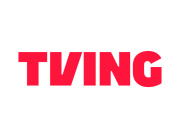Marcqunita Williams’ journey from a small-town girl to a trailblazing tax professional is one of resilience, determination, and vision. As a mother of three and a wife, Marcqunita has transformed her life from humble beginnings and personal challenges into a thriving career, all while nurturing a dream of leaving a legacy for her children and grandchildren.
What began as a side hustle to make ends meet evolved into a deep passion for financial literacy and empowerment. Marcqunita is dedicated to helping others build financial independence and stability through her expertise in tax preparation. With a mission to uplift individuals and turn financial struggles into opportunities, she’s creating lasting change—one tax return at a time. Her goal? To inspire others to break free from financial limitations and build the life they deserve.
It’s an honor to speak with you today. Share with the readers of Sheen Magazine who you are and your story.
I’m a mother of three and a wife, who grew up in a small town but always dreamed of more. As a single child, I had to grow up fast, taking on responsibilities early and learning to be independent. My dream is to leave a legacy for my grandchildren, to be known for helping others, and to empower them to become successful in their own right. I want to make a lasting impact by turning my ambitions into reality, not just for myself but for everyone around me.
What led you to start a career as a tax professional, and can you share a pivotal moment or experience that influenced your choice?
I started in the tax industry by mistake—I was just looking for a way to make some extra money. It took hitting rock bottom, having nowhere to stay, and moving around with my kids to realize that I needed to make a change. What began as a side hustle turned into a passion and a mission. Now, I’m not only focused on building the life I’ve always wanted but also on helping others do the same. It’s about more than just financial success; it’s about creating opportunities, empowering others, and making a real difference in their lives.
As a tax professional, what continues to drive your passion for this field, and how do you stay motivated year after year?
What keeps me motivated each year is the desire to create a better life for my children and to build a legacy that will outlast me. I’m driven by the challenges I’ve overcome, knowing that I’ve come from hitting rock bottom to standing on solid ground. The thought of empowering others to achieve their dreams and the satisfaction of seeing them succeed fuels my passion. Every year, I’m inspired by the progress I’ve made and the impact I can have on the lives of others, pushing me to keep going, keep growing, and keep helping.
Who are some of your inspirational role models within the tax industry, and how have they influenced your approach to tax planning and advising?
Leighsa Gibson is one of my biggest motivations. She’s shown me how to step out of my comfort zone and build something of my own. Her guidance and encouragement have been invaluable, pushing me to reach for more and believe in my ability to create the life I’ve always dreamed of. Along with a few others who have supported me along the way, Leigh’s influence has been a driving force behind my journey. She’s not just a mentor; she’s a reminder that I’m capable of achieving great things and making a lasting impact on others.
Can you discuss how the tax industry has evolved and changed over the past few decades, including any notable shifts or trends from 10 years ago and 20 years ago?
The tax industry has undergone significant changes over the past few decades, shaped by technological advancements, regulatory updates, and shifts in taxpayer behavior. Here’s an overview of how the industry has evolved, focusing on notable shifts from 20 years ago, 10 years ago, and the trends that continue to shape it today:
20 Years Ago: Early 2000s
Manual Processes and Paper Filing: he early 2000s were still dominated by manual processes. Paper filing was the norm for both individuals and businesses. Tax professionals relied heavily on physical documentation and manual calculations, making the tax preparation process time-consuming and prone to errors.
Emergence of E-Filing: Although electronic filing (e-filing) was introduced by the IRS in 1986, it wasn’t until the early 2000s that it began gaining traction. Initially met with skepticism, e-filing started to be adopted more widely as the IRS and state tax agencies promoted it as a faster, more efficient way to file taxes.
Limited Software Use: Tax preparation software was in its early stages, with a limited number of users. Tax professionals who used software were primarily focused on streamlining calculations rather than comprehensive automation or cloud-based solutions.
10 Years Ago: Early 2010s
Widespread Adoption of E-Filing: By the early 2010s, e-filing had become the standard method for submitting tax returns. The IRS reported that over 80% of individual tax returns were filed electronically by 2012. This shift significantly reduced processing times and errors associated with manual filing.
Proliferation of Tax Software: Tax software has become more sophisticated and widely used, both by tax professionals and individual taxpayers. Companies like TurboTax and H&R Block dominated the market, offering user-friendly interfaces and the ability to file returns online. The software also began incorporating cloud-based features, allowing for easier access and collaboration.
Increased Regulatory Complexity: The tax landscape became more complex, with the introduction of new tax credits, deductions, and reporting requirements. The Affordable Care Act (ACA), passed in 2010, added a layer of complexity, particularly with the introduction of the individual mandate and associated tax penalties.
Recent Trends: 2020s
Automation and AI: The tax industry has increasingly embraced automation and artificial intelligence (AI). These technologies help in automating routine tasks, such as data entry, document management, and even basic tax calculations. AI-driven tools are now assisting tax professionals in identifying tax-saving opportunities and ensuring compliance with complex regulations.
Remote and Virtual Services: The COVID-19 pandemic accelerated the shift to remote and virtual tax services. Tax professionals and clients alike have become more comfortable with virtual meetings, document sharing, and cloud-based software. This trend has made tax services more accessible and convenient for a broader audience.
Focus on Data Security: As tax filing becomes more digitized, the emphasis on data security has intensified. Cybersecurity threats have led to stricter regulations and the adoption of more robust security measures to protect sensitive financial information.
Globalization and Cross-Border Tax Issues: With the rise of the gig economy and remote work, more individuals and businesses are dealing with cross-border tax issues. The need for expertise in international tax law has grown, as has the demand for software that can handle multi-jurisdictional tax filings.
Environmental and Social Responsibility: There’s also a growing focus on environmental and social responsibility within the tax industry. Governments are increasingly using tax incentives and penalties to encourage sustainable practices, and businesses are looking to align their tax strategies with broader corporate social responsibility goals.
Looking Ahead
The tax industry will likely continue to evolve with advancements in technology, such as blockchain and AI, further transforming tax preparation, filing, and compliance processes. Additionally, ongoing regulatory changes, particularly related to global taxation, environmental policies, and digital currencies, will continue to shape the industry’s future.
These shifts have made the tax industry more dynamic and complex, requiring tax professionals to continually adapt and update their skills to stay ahead.
Share with our reader what’s next for you.
I have a virtual tax academy. I am planning tax events
Where can our readers follow you on social media?
Facebook.com/marcqunitawilliams
Instagram.com/naturallyunqec
tiktok.com/unqecme
Photo Credit: Levonte Doss






Add Comment